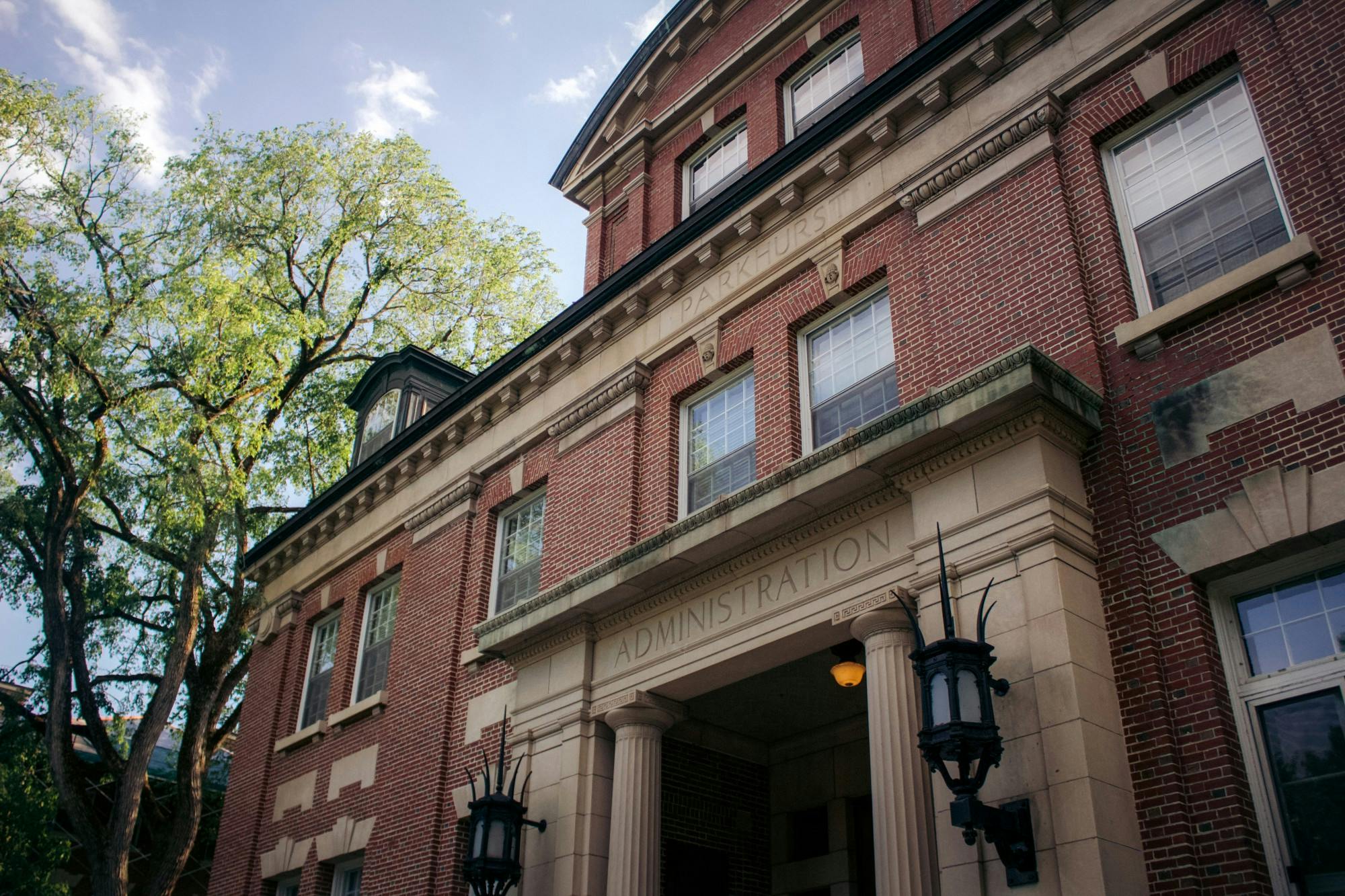On Nov. 8, the Board of Trustees unanimously voted to create a new school of Arts and Sciences, College President Sian Leah Beilock wrote in a campus-wide email on Wednesday afternoon. Beilock previously recommended The Future of Arts and Sciences Project to the Board after the project passed an Oct. 30 advisory vote among the faculty of Arts and Sciences.
In an interview with The Dartmouth, Beilock said she was “really excited” to see faculty and staff work on the project — which started under former College President Phil Hanlon two years ago — and “think about how to continue to push Dartmouth forward.”
“It was wonderful to see so many faculty come out to vote and that almost 80% voted in favor of creating this new structure,” Beilock said. “I thought it was just a great example of faculty governance.”
Beilock said she will consult with the faculty governance committees next to appoint an interim Dean of Arts and Sciences. While the interim dean will be selected internally, Dartmouth will conduct an “international search” for a permanent officeholder, she said.
Provost David Kotz — who co-led the project with Dean of the Faculty Elizabeth Smith and economics professor Nina Pavcnik — said he was “very pleased” that the Board approved the project because “a lot of people have put a lot of deep thought” to make the project “stronger and stronger.”
“I really think this is a better future for the Arts and Sciences and for Dartmouth,” Kotz said.
Kotz said the new school will have “better agency” to seek and allocate resources “to align with its mission.” The new school will provide Arts and Sciences leadership with “strategic control” over the “educational mission” of the undergraduate college as well as increased budgetary and operational autonomy, The Dartmouth reported in October.
“Today, [the Arts and Sciences don’t] have that much agency, so I think it’s a big improvement,” Kotz said.
While Dartmouth’s “teacher-scholar model” allows students to have “great relationships with faculty who are at the top of their field,” there is “sometimes a disconnect” between faculty work and student experiences under the current structure, Beilock said.
“What this [new school] does is put them together and allows us to really double down on the fact that we can be a great research university that is focused on the undergrad[uate] experience,” she said. “Those are not mutually exclusive.”
Kotz added that a fully separate Arts and Sciences will provide a “better experience around advising” for students by “better coordinating various people who support various aspects of advising.”
Beilock said she hopes the new organization will make it more “seamless” for students to access resources, such as internships and off-term funding, which are currently found in “different places.” Currently, students access advising through faculty advisors and staff advisors, who work “independently in different administrative units,” according to Beilock’s email.
“If we are going to really be the place that trains the next generation of leaders, that involves what’s happening inside the classroom and outside, and it’s got to be seamless,” Beilock said.
However, the project has been met with some concerns from faculty members and alumni. After the faculty vote, some faculty members expressed concerns about a lack of democratic faculty governance in the new Arts and Sciences division, which will not adopt a new faculty governance structure. Beilock said she believes the creation of the project — which involved input from faculty members and committees — was a “great example of faculty governance” because the project “went through the Arts and Sciences faculty governance.”
However, Beilock acknowledged that there have been calls for a faculty senate that would oversee the entire College.
“I think that’s a really interesting question, and I think we should explore it,” Beilock said. “Other institutions I’ve been at have had that, and it can be really helpful to faculty and to administration.”
Alumni have also voiced concerns about the potential naming of the new school of Arts and Sciences — as well as the Dean of Arts and Sciences position. Steve Upton ’77 and Barry Harwick ’77 told The Dartmouth that they preferred the names Dartmouth College and Dean of Dartmouth College, respectively, compared to other possibilities. According to Kotz, the Board did not vote to name the school, which will hold the “preliminary name” of the school of Arts and Sciences.
“Dartmouth College is the name and will continue to be the name of the whole of our beloved university,” Kotz said. “The school of Arts and Sciences is just for now the school of Arts and Sciences. We do not have a formal name for it.”
Beilock added that undergraduate students will still receive diplomas with the name Dartmouth College. The new school will “double down on the undergraduate experience” while ensuring involvement from “faculty and graduate students and research,” Beilock said.
“I want to get away from this idea that we’re having this fight between whether we’re a college or a university,” Beilock said. “We are both and that’s amazing, and I think we can lead in higher ed[ucation] because of that.”
Emily Fagell ’25 contributed to reporting.
Kelsey Wang is a reporter and editor for The Dartmouth from the greater Seattle area, majoring in history and government. Outside of The D, she likes to crochet, do jigsaw puzzles and paint.




